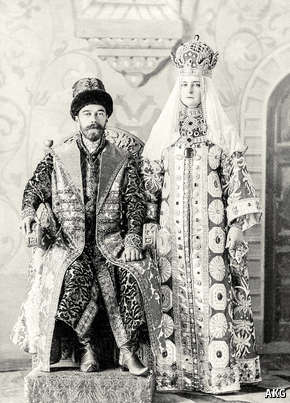The lessons of how Russia went to war

Towards the Flame: Empire, War and the End of Tsarist Russia. By Dominic Lieven. Allen Lane; 429 pages; £25. To be published in America by Viking in August.
THE first world war brought many afflictions to Europe: revolution, civil war, two famines, collectivisation, dictatorship and terror. The botched peace of Versailles stoked revanchism and brought further catastrophe in 1939. So the decisions which took Russia into a needless war in 1914 can be blamed for the death of at least 50m subjects of the tsarist and Soviet empires, plus countless others.
The origins, course and effects of the war have been minutely researched by Western historians, but not, until Dominic Lieven’s masterly new book, from a Russian point of view. The result is a gripping, poignant and in some respects revolutionary contribution to European history. The author—a distinguished British scholar descended from several of the protagonists he describes—has had unprecedented, and possibly unique, access to the Russian state archives. Shortly after he finished his research, the library fell into a Moscow railway tunnel. A week later it was closed.
“Towards the Flame” begins with a lucid sketch of the decades leading up to the war. The balance between the six great powers—Austria-Hungary, Britain, France, Germany, Russia and Turkey—was always at risk of upset. It depended on a mixture of cool-headed bluff and good diplomacy. They were all too often lacking.
By the end of the 19th century the European security order was disintegrating, pulled apart by nationalism, imperialism and globalisation. The empires were like tigers, which even when threatened with extinction will not co-operate. Preservation required statecraft based on common interests, not those of ethnic groups whose own linguistic and cultural aspirations were crystallising into the desire to run their own affairs. Globalisation was eroding national boundaries. But that was anathema to economically illiterate leaders who saw interdependence as weakness. Thinking was also skewed by what Mr Lieven calls “vapid” biological metaphors in which the state was seen as a living organism, ruthlessly competing for size and resources, prizing prestige and strength over stability and practicality.
Britain and France had overseas empires. The other European powers had colonies closer to home. Austria-Hungary was grappling with restless Slavs inside its borders, and still more unruly ones in its Balkan neighbours. It was heavily, and humiliatingly, dependent on Germany, which in turn felt stifled by its late arrival in the race for overseas territories.
Russia had the greatest woes. Humiliated in the war of 1905 with Japan, it was not modernising fast enough to keep up with the other great powers. The rise of Ukrainian national feeling (partially encouraged by Austria-Hungary) was a lethal threat to Russian identity; much the same as now, some would say. Russia hankered after liberating the Slavs of the Balkans and seizing control of the Bosporus from the ailing Ottoman empire, thus boosting its naval power. Pent-up anger among peasants and industrial workers, and an impatient middle class, meant that reform and repression alike risked a social explosion.
The leaders were grotesquely ill-suited to the problems they faced. Mr Lieven paints a series of vivid portraits of the Russian decision-makers and functionaries, and their attempts to overcome a system of government which elevated autocracy to a virtue: the tsar had to be “pope, king and dictator” at once, and was bad at each one.
What nowadays would be called civil society played a “nefarious” role too, Mr Lieven argues. He outlines the unhelpful part played in many countries by a hysterically nationalist press, voluntary bodies, such as the powerful naval fan clubs in Germany, which saw it as their role to prevent compromise besmirching the national honour, and segments of the Russian aristocracy which detested professionalism and pragmatism in state administration.
Mr Lieven’s Russia-centred point of view may jar with Poles and others who see the collapse of the tsarist empire as the midwife of national rebirth. But the book’s eloquence, insights and detail make it an indispensable read for anyone trying to understand European history in the last century—or world affairs in general.
Readers will be left aghast at the way in which largely sensible, humane and well-educated men brought about such suffering and havoc with their blinkered decision-making. Mr Lieven’s concluding thoughts, written from a Japanese mountainside where he has a second home, add a further note of dismay. He draws some sketchy but alarming parallels between Europe’s descent into disaster 100 years ago, and East Asia’s fractious security today, which is beset by a familiar cocktail of strident nationalism and brinkmanship.
No comments:
Post a Comment